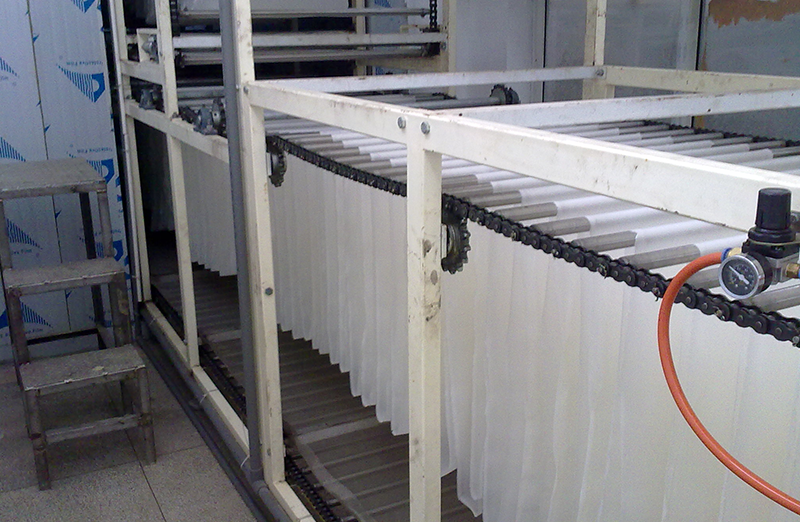Email: [email protected]
 2024.06.10
2024.06.10
 Industry News
Industry News
Specialized maintenance may be required for a rice noodle machine over time to ensure positive performance and longevity. Here are some potential maintenance tasks:
Regular cleaning: Implementing a systematic cleaning regimen is essential for maintaining hygiene and positive performance. After each use, the machine should be disassembled as per the manufacturer's instructions, and all parts cleaned thoroughly. Pay particular attention to areas where rice flour or residue may accumulate, such as rollers, belts, and cutting blades. Use approved cleaning agents and sanitizers to ensure food safety standards are met.
Lubrication: Lubricating moving parts and components is crucial for reducing friction, preventing premature wear, and ensuring smooth operation. Use food-grade lubricants recommended by the manufacturer, and adhere to the lubrication schedule provided in the user manual. Over-lubrication should be avoided as it can attract dust and debris, bring about potential contamination of the noodles.
Inspection of parts: Regular inspection of all machine components is necessary to identify signs of wear, damage, or misalignment. Check belts, rollers, cutting blades, and other critical parts for any abnormalities, such as cracks, fraying, or uneven wear. Replace worn or damaged parts promptly to prevent further deterioration and maintain consistent noodle quality.
Electrical maintenance: Electrical components of the machine, including wiring, switches, and controls, require regular inspection to identify potential issues such as loose connections, corrosion, or malfunctioning parts. Conduct routine checks of electrical systems, ensuring that all connections are secure and free from damage. Any faulty components should be replaced promptly to prevent safety hazards and operational disruptions.
Sealing inspection: Seals and gaskets play a vital role in maintaining the integrity of the machine and preventing leaks or contamination. Inspect seals regularly for signs of wear, deterioration, or damage, particularly in areas exposed to heat or moisture. Replace worn or damaged seals promptly using approved replacement parts to maintain hygiene standards and prevent potential product spoilage.
Troubleshooting: Develop a comprehensive understanding of common issues that may arise during the operation of the rice noodle machine and establish protocols for troubleshooting and problem-solving. Provide training to operators on identifying and resolving common issues, such as uneven noodle thickness, feeding problems, or motor malfunctions.
Professional servicing: While regular user maintenance is essential, scheduling periodic professional servicing by qualified technicians is also recommended. Professional servicing involves a comprehensive inspection of the machine, diagnostic testing, and preventive maintenance to address potential issues before they escalate.
INSTANT RICE NOODLE/DRIED RICE NOODLE PRODUCTION LINE
